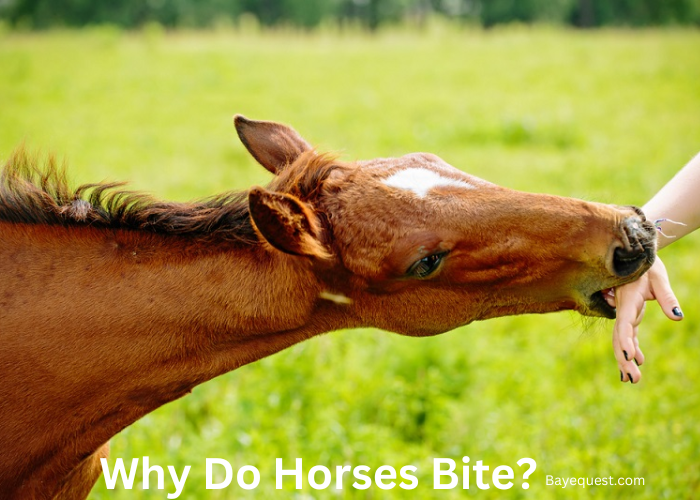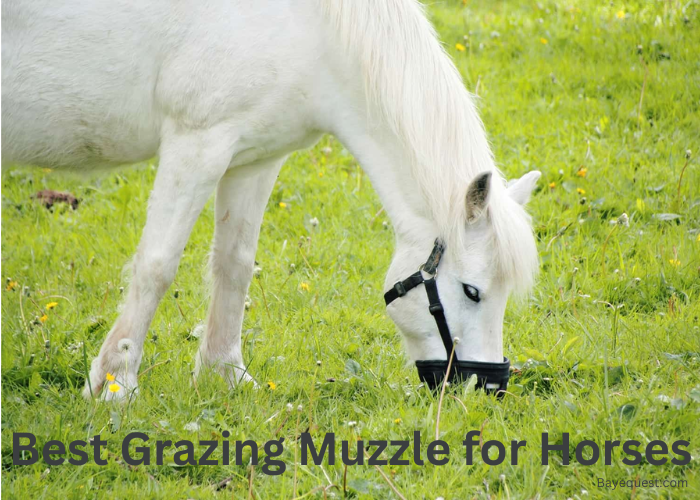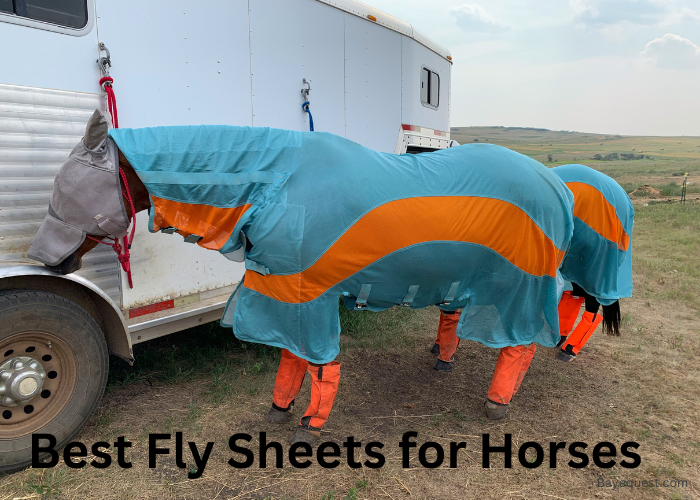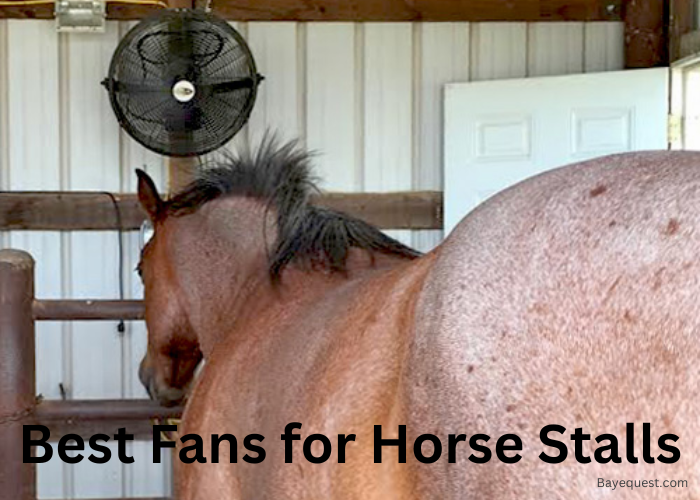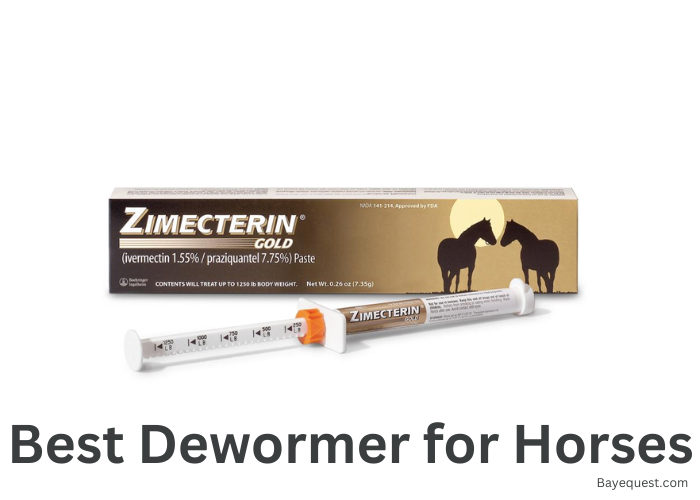Horses are powerful, graceful animals, but sometimes, they bite. To humans, a horse’s nip can seem random or even mean, yet there’s always a reason behind it.
Biting can be a horse’s way of communicating discomfort, frustration, or even affection. It can also signal pain or anxiety, especially in unfamiliar situations.
Understanding why horses bite will help you build trust with these sensitive animals.
In this post, we’ll dive into the different reasons behind this behavior, revealing what your horse might be trying to tell you.
Why Do Horses Bite? Key Takeaway
- Communication
- Fear
- Food aggression
- Pain
- Defensive mechanism
- Frustration or insecurity
- Dominance
- Play
- Underlying health issues
- Boredom
- Improper training or handling
- Curiosity
Why Does a Horse Bite?
This behavior has many reasons, and understanding them can help you better manage and bond with your horse.
Let’s uncover the mysteries behind those bites.
1. Communication
Horses use biting as a way to communicate. It’s like their version of talking. In the wild, horses bite each other to say things like, “Move over,” or “I’m the boss here.” Even in a domestic setting, this behavior sticks.
If your horse nips at you, it might be trying to tell you something. Maybe it’s saying, “Hey, I don’t like that,” or “Give me some space.”
Understanding that biting can be a form of communication helps you figure out what your horse is trying to tell you. Pay attention to the context and body language.
It can affect how you respond and improve your relationship with your horse.
2. Fear
Fear can make horses bite. Imagine you’re scared and cornered; you’d lash out too, right?
Horses are prey animals, so their first response to fear is often to defend themselves. If a horse feels threatened or trapped, it might bite to protect itself.
This can happen with sudden movements, loud noises, or unfamiliar objects. Even a well-meaning person can unintentionally spook a horse.
Create a calm and safe environment for your horse. Approach it slowly and gently, giving it time to see you’re not a threat. Building trust is key to reducing fear-based biting.
Interesting read: What Causes Equinophobia?
3. Food aggression
Horses can get serious about their food. Some horses become aggressive during feeding time and might bite to protect their meal.
This is called food aggression. It’s like saying, “This is mine, stay away!” If you notice your horse getting nippy around feeding time, it’s a sign of this behavior.
Establish a routine and stick to it. Make feeding times predictable and give your horse enough space.
Don’t crowd them or try to take their food away. With patience, you can reduce food aggression and make mealtime much calmer.
4. Pain
When horses are in pain, they might bite to express their discomfort. Imagine having a sore tooth, and someone pokes it. You’d react, right? Horses do the same.
Pain can make them lash out, whether a dental issue, an injury, or something internal. If your usually gentle horse starts biting, it might be in pain.
Look for other signs, such as limping, flinching, or changes in behavior. A visit to the vet can help identify and treat the problem.
Once the pain is managed, the biting often stops, too. Always listen to what your horse is trying to tell you with its actions.
5. Defensive mechanism
Biting can be a horse’s way of defending itself. They use their teeth in the wild to fight off predators or other horses.
Even domesticated horses retain this instinct. If they feel threatened, they might bite to protect themselves.
This can happen if a horse is handled roughly or feels cornered. Being mindful of your horse’s personal space and approaching it calmly can help. Avoid sudden movements and loud noises that might startle it.
6. Frustration or insecurity
Horses can bite out of frustration or insecurity. Just like people, they can get annoyed or anxious. If a horse feels ununderstood or is in a stressful situation, it might lash out with a bite.
This can happen if training sessions are too intense or if they’re not given enough time to adjust to new things. Notice what triggers this behavior and try to address it.
Sometimes, slowing down and giving your horse more time to process can make a big difference.
Building a secure and understanding relationship helps reduce bites from frustration or insecurity.
7. Dominance
Biting can be a show of dominance. In a herd, horses establish a pecking order, and biting is one way they do it.
If your horse sees you as lower in the hierarchy, it might try to assert dominance through biting. This is more common in younger or less-trained horses.
To address this, you need to establish yourself as the leader. Be consistent with boundaries and training.
Use positive reinforcement to encourage good behavior. Avoid physical punishment, as it can make things worse.
With consistent training, your horse will learn to respect you as the leader over time, and the biting should decrease.
8. Play
Sometimes, biting is just a part of play. Horses, especially young ones, use their mouths often when playing with each other.
It’s a natural behavior that can be misinterpreted as aggression.
If your horse nips at you while seeming happy and energetic, it might be trying to play. This doesn’t mean it’s okay, though.
You need to teach your horse that nipping humans isn’t acceptable. Redirect its energy with toys or safe objects it can chew on.
Engage in activities that don’t involve nipping. You can enjoy your horse’s company without getting bitten by channeling its playfulness correctly.
9. Underlying health issues
Biting may also be a sign of an underlying health issue. If a horse is unwell, it might bite to show discomfort or irritation.
Conditions like ulcers, dental problems, or even certain diseases can cause a horse to bite. If you notice a change in your horse’s biting behavior, it’s worth getting a thorough check-up from the vet.
Identifying and treating health problems can often resolve the biting behavior. Keep an eye on your horse’s overall health and behavior.
Early detection and treatment of health issues not only improve your horse’s well-being but also its behavior.
10. Boredom
Horses can get bored, and a bored horse might bite. They need mental and physical stimulation to stay happy.
If a horse is left alone for too long without anything to do, it might start biting out of sheer boredom.
Providing your horse with toys, regular exercise, and varied activities can help keep it entertained.
Social interaction with other horses is also important. A stimulated horse is less likely to develop bad habits like biting.
Keep things interesting for your horse, and you’ll likely see a reduction in bored, nippy behavior.
Find out other boredom busters for horses in our comprehensive guide.
11. Improper training or handling
Improper training or handling can lead to biting. If a horse hasn’t been trained correctly or handled roughly, it might develop biting as a response.
Horses need clear and consistent signals from their handlers. Mixed messages or harsh treatment can confuse and frustrate them, leading to biting.
Always use positive reinforcement and consistent training methods. Seek help from experienced trainers if needed.
Proper handling builds trust and respect between you and your horse. When your horse understands what’s expected and feels safe, biting is less likely to occur.
12. Curiosity
Horses are naturally curious animals. Like young children, they explore their world with their mouths, sometimes leading to nipping or biting.
If a horse nibbles at you, it might be trying to figure out what you are. This behavior is more common in young horses. While it’s usually harmless, you need to discourage it.
Provide safe objects for your horse to explore and chew on. Encourage curiosity but set boundaries for acceptable behavior.
With gentle guidance, your horse can satisfy its curiosity without nipping at you.
Why Do Horses Bite Humans?
Yes, horses do bite humans, and it happens more often than you’d expect. But it’s rarely out of meanness.
Horses bite for many reasons, and most of the time, it’s their way of trying to communicate.
Sometimes, it’s pure curiosity, especially in younger horses. Other times, they may nip to express discomfort or ask for space.
Fear and pain are common triggers as well; a scared or hurt horse might bite to defend itself.
Food aggression, playful behavior, or a lack of training can also lead to biting.p.
See also: Reasons Why Horses Foam at the Mouth.
Do Horses Bite Other Animals?
Yes, horses bite other animals, and it’s pretty common. Horses live in herds and use biting to communicate with each other.
Biting helps establish the pecking order in a herd. It’s not always about aggression; sometimes, it’s just about setting boundaries.
Horses might also bite other animals out of curiosity. If a dog or another small animal comes too close, a horse might give it a little nip to check it out.
This is more likely if the horse hasn’t encountered that type of animal before.
Fear and defense are other reasons. If a horse feels threatened by another animal, it might bite to protect itself.
This could be a reaction to a predator or even a smaller animal that’s being too annoying or aggressive.
Lastly, there’s food aggression. Just like with humans, some horses are so protective of their food. If another animal tries to get near their meal, a horse might bite to keep it away.
The Role of Horse Biting in a Herd
Horse biting plays a big role in a horse herd. It’s not just random or mean behavior; it’s a key part of how horses communicate and establish their social structure.
In a herd, there’s always a pecking order. Some horses are leaders, and some are followers. Biting helps establish and maintain this hierarchy.
When a horse bites another, it might be saying, “I’m in charge,” or “Respect my space.” These bites can be gentle nips or more forceful actions, depending on the situation.
Through these interactions, young horses learn their place in the herd. It’s a natural part of growing up and understanding their social world.
Biting also helps horses set boundaries. If one horse gets too close or does something annoying, a quick nip can say, “Back off.”
This keeps peace in the herd by making sure everyone knows the rules and respects each other’s space.
Tips to Prevent Biting
Preventing biting in horses involves a combination of good practices and understanding your horse’s needs. Here are some practical tips to help you prevent biting:
- Establish clear boundaries
- Positive reinforcement
- Approach calmly
- Handle with care
- Regular training
- Check for pain or discomfort
- Provide mental and physical stimulation
- Consistent routine
- Safe feeding practices
- Seek professional help if needed
- Educate yourself
How to Feed a Horse by Hand Without Getting Bitten
Feeding a horse by hand safely requires a few simple steps.
First, stand beside the horse, not directly in front of it. Hold the treat with your fingers flat, like you’re making a plate with your hand.
The horse will take the treat with its lips, not its teeth. Always approach calmly and avoid sudden movements that might startle the horse.
Teach the horse to wait patiently using a command like “easy” or “wait” before giving the treat. If the horse gets pushy or nippy, stop feeding by hand until it calms down and respects your space.
These steps help ensure a safe and enjoyable feeding experience for you and your horse.
Interesting read: What do Horses in the Wild Eat?
Wound Treatment for Horse Bite Injuries
Treating a wound from a horse bite is important and should be done carefully. Here’s a simple guide to help you handle it:
1. Stay calm
First, stay calm. Panicking won’t help. Take a deep breath and assess the situation. If the bite is serious, don’t hesitate to call a vet.
2. Clean the wound
Clean the bite area as soon as possible. Use clean water to rinse out dirt and debris. You can use mild soap, but avoid harsh chemicals. Gently pat the area dry with a clean towel.
3. Disinfect
After cleaning, disinfect the wound. Use an antiseptic solution like iodine or hydrogen peroxide. This helps prevent infection. Be gentle, as the area might be tender.
4. Apply a bandage
If the wound is bleeding, apply a clean bandage. Use gauze or a sterile pad to cover the bite. Wrap it snugly but not too tight. You want to stop the bleeding without cutting off circulation.
5. Monitor for infection
Keep an eye on the wound. Signs of infection include redness, swelling, heat, and pus. If you see any of these signs, call a vet. Infections can get serious quickly.
6. Pain management
If your horse seems in pain, consult your vet about pain relief options. They can recommend safe medications or treatments to help your horse feel better.
7. Keep It clean
Change the bandage daily and keep the wound clean. Gently clean the area and reapply antiseptic before putting on a fresh bandage. This helps prevent infection and speeds up healing.
8. Limit activity
Keep your horse’s activity level low to prevent the wound from reopening. Avoid strenuous activities and give your horse time to heal.
9. Follow vet’s advice
If you called a vet, follow their advice closely. They might prescribe antibiotics or other treatments to help your horse heal.
10. Watch for healing
Monitor the wound as it heals. It should gradually improve, with less swelling and redness. Contact your vet for further advice if it doesn’t seem to be healing.
Interesting read: Why do horses eat poop or manure?
FAQs
Do I need a tetanus injection when a horse bites me?
Yes, it’s a good idea to get a tetanus injection if a horse bites you, especially if it’s a deep or punctured wound. Horse bites can introduce bacteria into your body, and tetanus bacteria thrive in such conditions. If you haven’t had a tetanus shot in the last 5 to 10 years, getting one is wise to be safe.
Is my horse trying to show affection when they nudge?
Yes, horses show affection through nudging and other ways like licking and nibbling. Horses nudge each other to show companionship and bonding. When your horse nudges you, it could be seeking attention, affection, or treats. However, ensure the nudging doesn’t become pushy or aggressive.
Conclusion
So, there you have it – the many reasons why horses bite. It’s not always about being mean or naughty. Sometimes, it’s about fear, pain, or saying, “Hey, back off!”
Understanding these reasons can help you prevent those nips and build a better bond with your horse. Remember, every bite has a story, and now you’re a bit of a horse whisperer yourself.
Keep calm, stay patient, and always listen to your horse’s advice. Happy riding and may your encounters be bite-free and full of fun.




